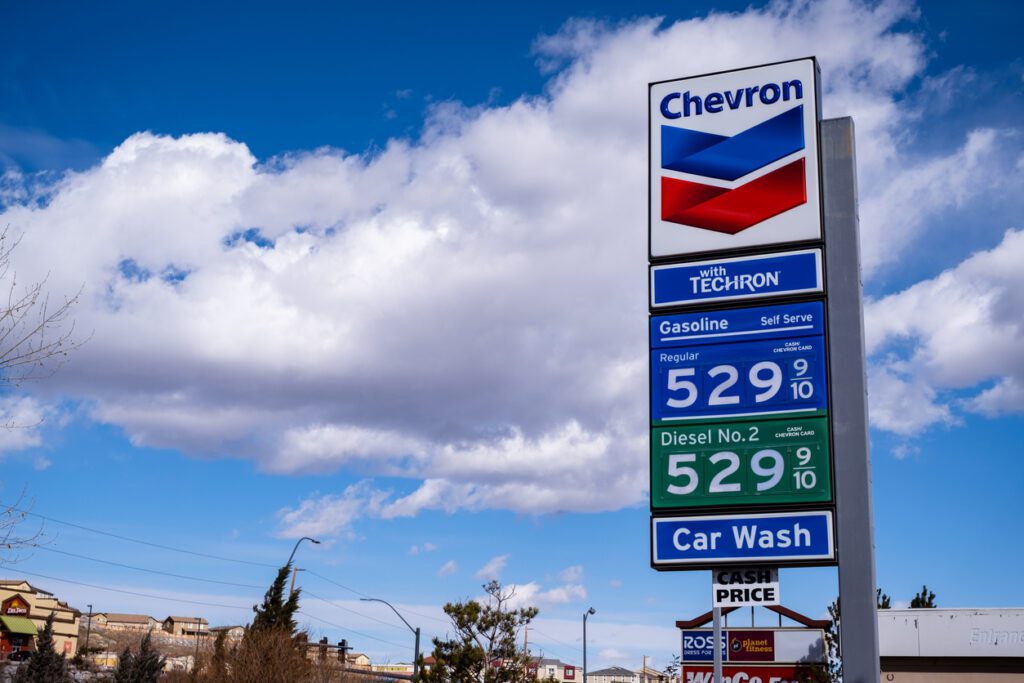Inflation is Hitting Online Fundraising Hard
Challenges are piling up for digital fundraising in what was projected to be a midterm year of record spending.

Rising U.S. inflation is hurting campaign fundraising with rank-and-file donors cutting back on political giving as they try to weather higher prices on everyday goods and services.
The tough economic environment is likely to persist, which could mean the record-spending projected for the 2022 midterm will be off the mark. That may cause some blushes for the bullish media analysts who predicted the presidential-level spend, but it could also shape tactics in the final months of the cycle.
“As Americans are looking at how do they trim their budgets, and survive inflation, higher prices, gas prices going up, they’re looking at ways to cut spending and one of those ways that they can do that is in their political contributions,” said Eric Wilson, who heads the Center for Campaign Innovation, a conservative non-profit research and training group.
The Center on Wednesday released a report based on interviews with fundraisers that sheds light on the current state of online fundraising. In the survey, 70 percent of respondents said online fundraising “underperformed their expectations” in the first quarter of 2022.
The impetus for the research was a steady stream of grim anecdotes Wilson heard from fundraising practitioners.
“We had been getting lots of anecdotal comments from folks saying, ‘Hey, it’s a really tough environment for online fundraising, have you heard that from other people?'” he said. “It got to the point that we decided to catalog that and see if we could derive some insights from that qualitative feedback.”
Campaign contributors, who make up less than 1 percent of the U.S. population, are often thought of by practitioners as wealthier, better educated and having more disposable income, said Wilson. But inflation is so bad this year that it’s hitting even this demographic.
“Everyone, regardless of how much money you make, has taken a 20-percent pay cut essentially over the past couple of months because of inflation and high gas prices,” he said. “It makes sense that people are pulling back.”
In fact, inflation is just one concern that online fundraisers on the right have, according to the report, which is based on a survey of 32 digital fundraising professionals.
Competition for donors who have a history of giving to candidates and groups is also heating up because of the online tactics being used. “People that have donated in the past are easily reached via these fundraising lists. Where the opportunity is, particularly for local candidates, is to bring new people into the online giving process,” said Wilson.
Campaigns need to create value for potential donors and capture that value in the form of contributions, he added. “The pool of donors hasn’t grown much because everyone is focused on using the same tactics, which involves going to the same donors: people who have given in the past. So there’s a lot of work to be done in growing the pie.”
Donald Trump is also weighing on down-ballot candidates’ online fundraising. While the initial launch in February of the former president’s Truth Social platform was a good hook for donors, that has since ebbed and now candidates find themselves competing with Save America, Trump’s leadership PAC, for contributions.
“Trump still remains very popular with grassroots donors and they’re going to give to him,” Wilson said. “And they’re choosing not to give to the party, the party committees and candidates who are in cycle right now.”
The decline of Facebook advertising’s effectiveness for fundraising is also helping bring down totals this cycle, according to the report. In previous cycles, campaigns and groups had spent heavily on Meta’s platform to promote surveys and petitions to build email lists against known conservatives.
Now, one fundraiser told Wilson, Facebook ads have “stopped working.”
Texting has filled in some of the gaps because its well-suited for direct response, albeit in a limited way. “The challenge is you don’t have necessarily that authentication knowing that the person I’m donating to is actually the candidate, or could it be a PAC that’s trying to fundraise on behalf of the candidate?” Wilson said. “It’s not a completely comprehensive replacement.”
Other channels, such as email, are also problematic, because conservative practitioners believe there is a deliverability bias at companies like Microsoft, Alphabet and Yahoo. “It’s a challenge,” Wilson said.
He suggested that political communication via email should be treated differently than commercial sends: “That would lift some of the pressure off of these tactics.”
